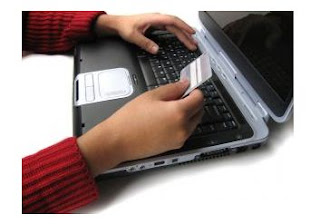Assuming you use credit prudently, however, it can often be a better bet than cash. In fact, the benefits of careful credit card usage are so great, that they often outweigh the simplicity of cash. Here are five solid reasons why credit cards can make more financial sense than cash.
1. They're Safer Than Cash
There are some who feel that cash is safer than cards, but what happens when your cash is stolen or misplaced? There is no getting it back. There is 100% liability on your end and all is lost. Credit cards, on the other hand, offer myriad protections, giving you peace of mind when your card is lost or stolen. You're also able to track purchases and spending more efficiently, and spot fraud or card misuse.
Sure, hackers can steal your credit card information, and a lost card presents challenges of its own. But there's no financial institution ready to help when you lose cash. Credit cards come with the backing and help of professional staff trained and equipped to handle such situations.
2. They Help Build Credit
As much as we fear over-using credit, not having any credit can have its own repercussions. Lack of credit can hamper your ability to take out necessary loans (such as auto loans or mortgages) and even limit more basic things, such as rental car options. Have you ever thought about renting a car, but all you had was a debit card or cash? From my experience, many companies such as Hertz or Enterprise will do a soft credit check to see if you are eligible for the rental. Plus, having established credit also gives you a shot at better interest rates and expedites approvals on loans.
3. You Can Earn Cash Back or Travel Rewards
Many credit card companies offer cash back incentives — some as much as 6% on grocery purchases, or even 5% on shopping purchases. Cashback incentives add up and you'd be amazed after 90 days just how much cash back you've earned. That cash is yours to keep — no strings attached. (Check out one of our favorites: Citi Double Cash Card)
A travel rewards credit card can get you even more value from your purchases. Redeem your earned miles for free flights, stays, and upgrades. In addition, many cards include travel perks like priority boarding, exclusive lounge access, free checked baggage, and more. (Check out our favorite travel card: Chase Sapphire Preferred)
4. There Are Insurance Protections
Credit cards also offer insurance perks. Just by using your credit card you have access to multiple insurance options, such as supplemental insurance, lost luggage insurance, travel and accident insurance, and more. Plus, some credit card companies also give you the ability to halt or reduce payments during periods of change or difficulty — such as a relocation, new baby, new job, unemployment, or death in the family.
5. Cards Offer Purchase Tracking and Customer Service
Credit cards enable you to more efficiently track your purchases, and let you dispute payments should problems arise. Plus, credit card companies' customer service hours extend well beyond those of your local bank branch, allowing you to resolve issues at any time. And though ATMs can be used 24 hours a day, for larger purchases, credit cards facilitate bigger spending at any time of day.
When else do you prefer to use cards over cash?
Source:https://www.wisebread.com/5-times-credit-cards-are-smarter-than-cash















